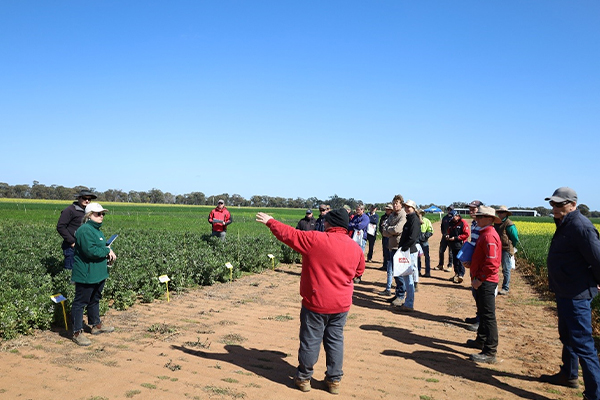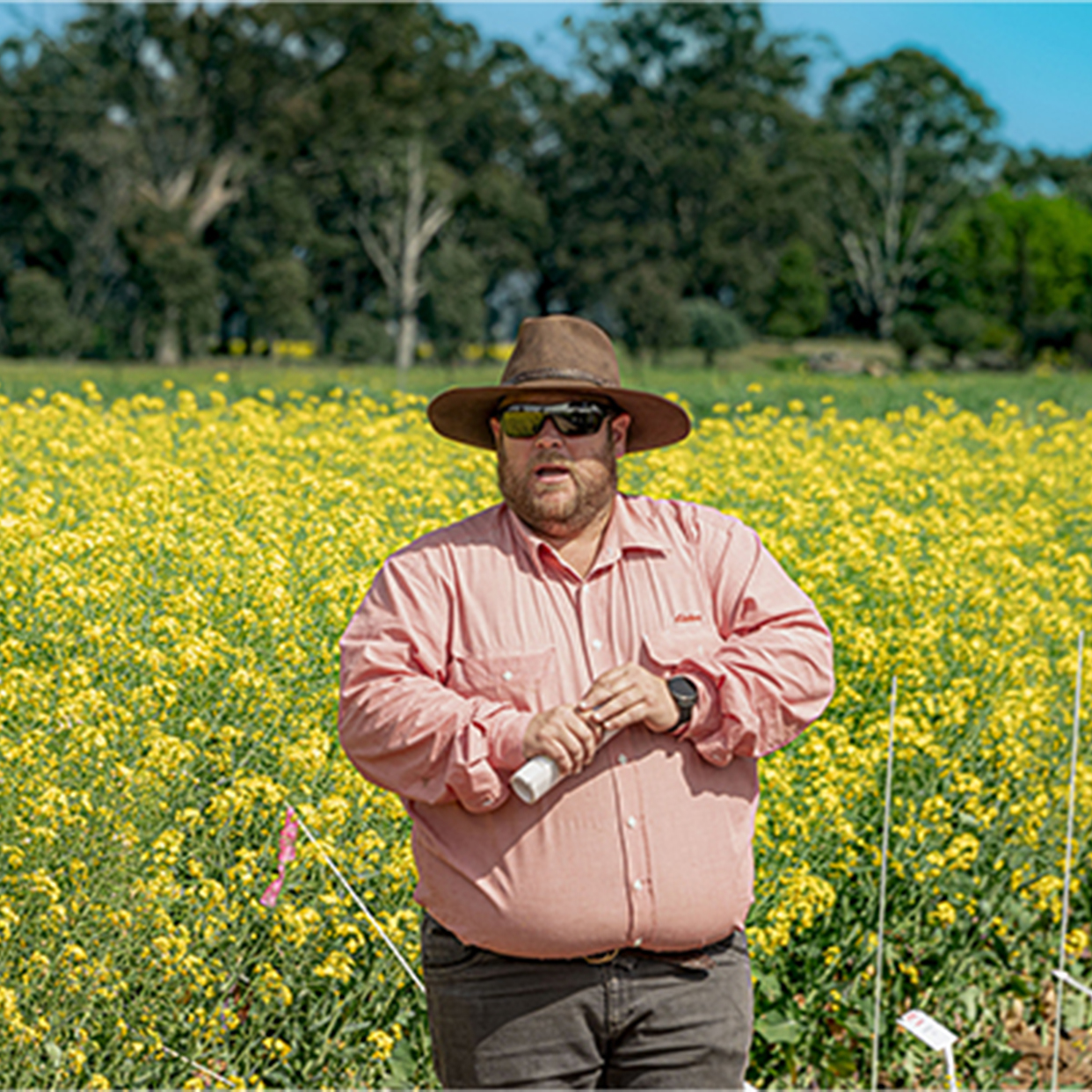Elders agronomists from central Victoria last month hosted local growers and suppliers at their broadacre technology site at Bendigo, to discuss emerging trends in product innovations and farming practices.

Now in its fourth year since conception, the trial site, which is located just northwest of Bendigo, aims to showcase the latest crop protection, nutrition and seed genetics to hit the market. Farmers joined the team for a crop walk last month, followed by a barbeque lunch and discussion.
The site hosts a myriad of replicated trials and demonstrations comparing production and economic benefits from adopting new technologies over current standards.
Elders State Technical Services Manager Craig Farlow said the trial site has become a great resource for local farmers.
“We invite growers to the trial site several times a year, for crop walks or breakfast meetings,” Craig said.
“This time of year, seeing is believing in terms of which combinations of practices have produced the best results. The fact that we are looking at weed and disease management, fertiliser responses and varietal performance under different seasonal conditions and across multiple years really sets the bar from which are the consistent winners.
“We want to show our growers how and where these new technologies might fit into their own cropping systems, and hopefully give them confidence to scale this up into their own farms.
“We’ve had a particular focus the value of pulse crops in the rotation, with a lot of interest in the potential of growing more lentils and faba beans in the region. Critical to the success of legumes and the potential nitrogen benefit they leave behind is soil fertility, especially in addressing any underlying soil acidity constraints and so we had some good discussions around soils and nutrition.
The Derby site forms part of Elders’ national research and development trial program, which runs in various locations across the country. At each site, a large focus is placed on researching ways to make farming more sustainable. Practices which provide measurable improvements in the short term can also provide cumulative benefits in the longer term.
“Ag Tech is something we can see playing a dual role in driving adoption of more sustainable practices (for example, variable rate fertiliser or lime application) and measuring the short- and long-term outcomes of those practices (for example, satellite imagery or yield mapping)," Craig said.
“This year at the trial site we have been using data from drone-mounted multispectral cameras to correlate responses at the plot level to different crop nutrition and fungicide treatments applied. Where indices used have a good correlation, these same approaches can validate responses on a paddock or farm scale."
Anton Mannes is a senior agronomist based at Elders Bendigo and has done a lot of work in developing the Derby trial site. He said the site is important so that growers have localised results and information at hand.
“Every area is different, so we want to make sure we are doing the work for our growers at a local level, so they have the best information possible,” Anton said.
“In this trial site, we have been looking at canola, cereals and pulses, vetch and oaten hay, and we are looking at all facets of the agronomy around them, whether that be herbicide applications, fungicides, or nitrogen and nutritional aspects.
“This is our fourth year at the trial site, and with over 700 different product or variety treatments, we are always trying to keep our clients at the forefront of what is emerging. We want to be able to reassure our growers that we know something will work because we have been assessing it over the last few years.”
Meet the team
